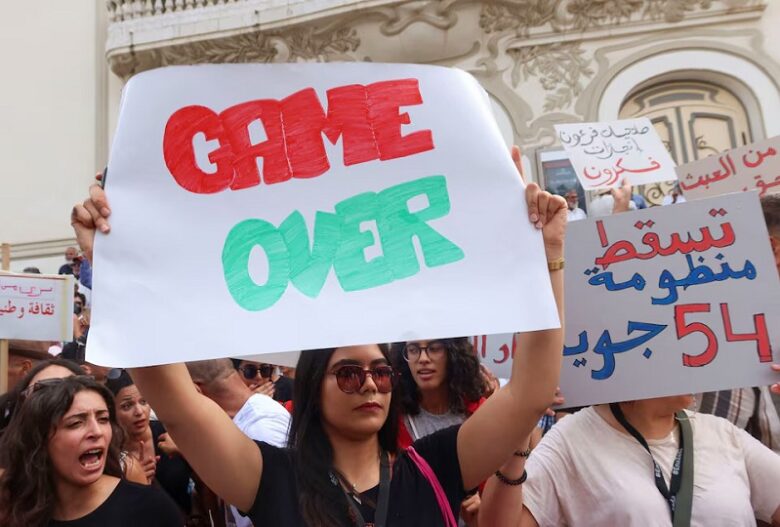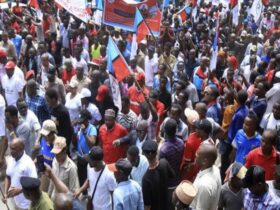Hundreds of Tunisians took to the streets on Sunday to protest against President Kais Saied, accusing him of increasing authoritarianism and suppressing political competition just two weeks before the presidential election.
Under heavy police presence, demonstrators marched for a second week along Tunis’ main avenue, a historic site of the 2011 “Arab Spring” revolution, chanting slogans like “The people want the fall of the regime” and “Out with dictator Saied.”
The protests followed lawmakers’ proposals to limit the administrative court’s power to resolve electoral disputes, which the opposition argues would undermine the credibility of the October 6 election and help Saied secure a second term.
“Saied’s steps show that he is no longer popular and he fears losing the election,” said Nabil Hajji, leader of the opposition Attayar party.
“Tunisians now have only one choice, which is the streets to defend our democracy,” he stated. Political tensions have escalated in Tunisia since an electoral commission appointed by President Kais Saied disqualified three prominent presidential candidates: Mondher Znaidi, Abdellatif Mekki, and Imed Daimi.
The commission bypassed the administrative court, the highest authority in election-related disputes, allowing only two candidates to challenge Saied.
One of them, Ayachi Zammel, was sentenced to 20 months in prison for falsifying signatures on election documents, which he claims is a politically motivated charge.
Analysts argue that Saied is manipulating the electoral commission and judiciary to secure his victory by suppressing competition and intimidating opponents.
The president refutes these claims, insisting he is combating traitors, mercenaries, and corruption.
Since being democratically elected in 2019, Saied has tightened his control, ruling by decree since 2021—a move the opposition has labeled a coup.
YOU MAY ALSO READ: US mass shooting leaves four dead, 18 injured in night of violence









Got a Question?
Find us on Socials or Contact us and we’ll get back to you as soon as possible.